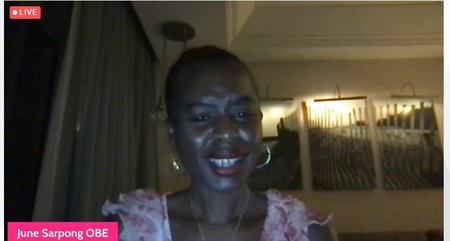
Women of colour can channel their resilience, understanding and experiences to help others from a similar background reach their full potential, broadcaster June Sarpong OBE said.
In a keynote speech at the inaugural GG2 Women of Colour conference, Sarpong added that ethnic minority women who experience both racial and gender bias have an unparalleled understanding of some of society’s deepest issues. And this can be channelled by businesses to their advantage.
“If any organisation is to be all that it can be, then it needs to ensure that women of colour are really at the centre of that,” Sarpong said.
She noted that gender and racial bias were an unfortunate daily reality for most women of colour, but asked ethnic females to “lead with your point of difference”.
According to her, “Up until this point, often, if you were from a minority background, you felt that you had to assimilate, in order to be accepted. But, actually, what we want is integration. And we want people to be able to be their authentic selves, who they are, and lead with that point of difference, because that point of difference is often what is needed.”
Sarpong stressed the need for developing diverse teams at the workplace and urged business leaders and ethnic minority women not to shy away from having difficult conversations.
“As long as we’re doing that, we are at the beginning of an exciting phase in business, because we’ve never seen women of colour given the opportunity to truly fulfil their potential. in large numbers.
“There’s always an outlier. And there’s always a reason as to why that outlier has succeeded. “We need to study more of the outliers and the reasons they succeeded and use that as a template to nurture and develop a whole generation of talented women of colour, they have so much to contribute to businesses all over the country.”
Reflecting on her career in the media, Sarpong revealed how she had suffered racial bias and experienced hurdles in her progression in the industry. She said, “I told myself, ‘I am not going to use external validation as the as the mechanism by which I value myself, because if I’m doing that I’m in big trouble.’”
She described how in her current role at the BBC, she is focused on diversity in the creative side of the corporation.
“We’re working with our suppliers to understand the culture of our sets and productions. That work is much harder to quantify, but you know it by how people tell you they feel, and that you have to be constant.
“It means listening and hearing really uncomfortable feedback, because it doesn’t happen overnight. This is 100-year-old institution that’s been incredibly successful in catering to one particular part of the public. So to broaden that out, actually, now we are going to give responsibility and opportunity to everyone – it is difficult, but we have to do it.”